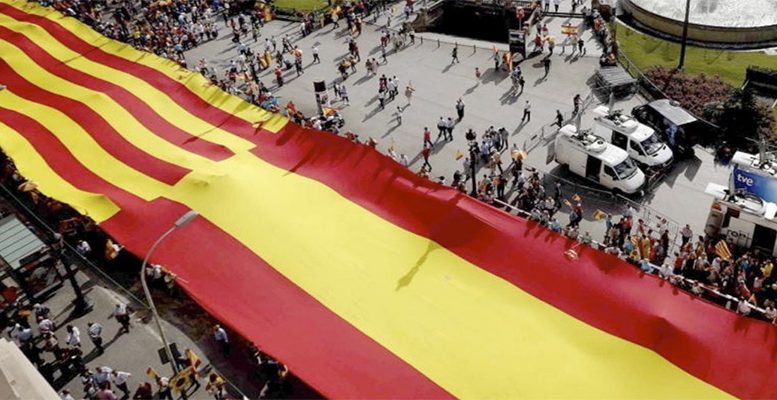Joan Tapia (Barcelona) | The increased political tension and those profits who announce the end of the recovery and the beginning of another recession – sometimes the same who not long ago said we would not exit the crisis – are beginning to affect – even disrupt – Spanish society.
BBVA says that Spain could grow 2.4% this year (it grew 2.5% in 2018) and 2% in 2020. This would create 800,000 jobs over the two years and unemployment would fall to 12.6% (compared to 15.3% in 2018. A rosy future? No because BBVA warns that the probability of an accident has increased.
Spanish growth is heavily based on the export of goods and services, which has passed from 26% to 34% of GDP between 2007 and 2018. If the soft landing of the global economy were less harmonious, the Spanish economy would notice it. In addition it is the uncertainty about Spanish economic policy which has increased with the discussion of the 2019 budget. BBVA believes that – even if the budget is approved – the deficit will not meet the target of 1.3% of GDP but reach 2% or 2.3%. In my opinion this does not matter in the short term, as long as it does not get close to the 3% limit set by the EU and which would affect international confidence. Although it would be foolish to forget that Spain’s public debt – the accumulation of the almost permanent annual deficit – is 12 points above the eurozone average, around 100% of GDP.
BBVA also thinks that the economy will grow more due to the expansionary budgetary policy and the increase in the minimum ways, but that the medium term impact will be negative.
However, the fear of accident which is beginning to dominate Spanish society results not so much from the economy as the growing political confrontation. The tension is not new. But after Andalucia elections – which have facilitated a government of a rightish coalition of PP and Ciudadanos supported by Vox – the entire activity of the right – and this has been seen with Venezuela and even more with Catalunya – has focused on ejecting, however and as soon as possible – the squatter in the Moncloa.
It is a questionable and dangerous strategy because it is not compatible with a stable democracy. But it is much more dangerous when the Catalan crisis has become the principal weapon for overthrowing the government and when it reverts to mass demonstrations. In 2011, when Rajoy arrived in the government, the pro-independence vote was below 15% and has now grown to 47%. The Catalan situation is explosive because it represents 16% of the population and 19% of GDP. And dealing with it demands responsibility, not exciting the passions for electoral calculations, and a basic consensus between the two main parties (at the very least).
This consensus was achieved with the pacts with the PSOE of Pedro Sánchez in the last months of the Rajoy government with led to the application – with prudence and reasonable success – of article 155 to avoid with acceptable costs the unilateral independence of Catalunya in the last quarter of 2017. Unfortunately this consensus has now disappeared.
Has Pedro Sánchez gone too far in the negotiations with the separatist parties and the Catalan government to secure the approval of the 2019 budget? (At the time of writing these lines, the talks have been broken by Sánchez). It is debatable. In any case what is worrying – and indicates the lack of statesmanship – is that the leader of the PP has condemned the leader of PSOE who approved the article 155 of Rajoy. This weeks he accused of no less than being a traitor, a criminal, illegitimate, a compulsive liar, ridiculous, an advocate of the break up of Spain, irresponsible, incapable, disloyal, an egomaniac, a chauvinist, a hostage, mocking Spain, incompetent, mediocre and a squatter.
If this is the image that the Spanish centre-right want to give to the citizens and the national and European economic circles, we are in trouble. Sánchez is not Maduro and Casado should not be Salvini. And this will get worse if he dosen´t take into account even for a moment that this kind of language can only increase the disaffection in Catalunya, on which then President Montilla warned before the 2010 decision on the Statute. The economy is doing alright, but we should not drop our guard. The political tension is generating fear of something really serious which calling an accident would be too weak.





